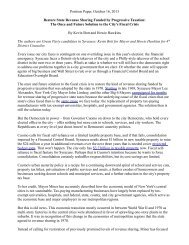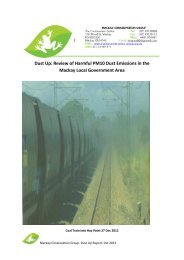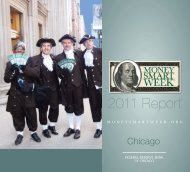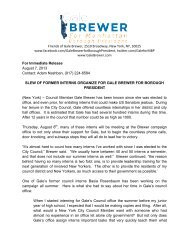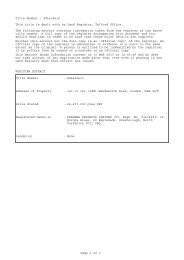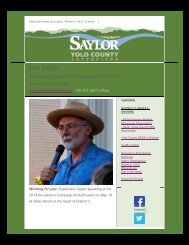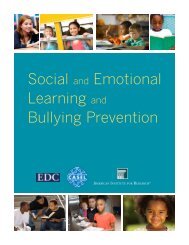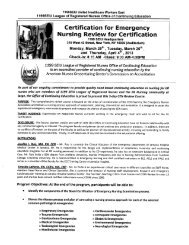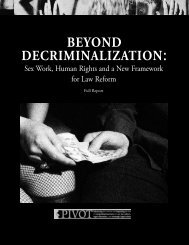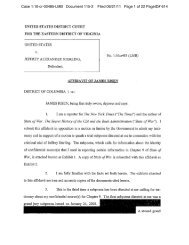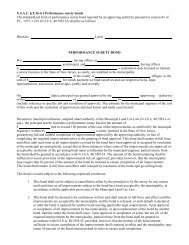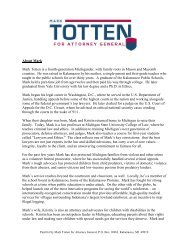13-1230 - Proposed Resolution
13-1230 - Proposed Resolution
13-1230 - Proposed Resolution
Create successful ePaper yourself
Turn your PDF publications into a flip-book with our unique Google optimized e-Paper software.
WHEREAS, the Supreme Court famously observed in Zorach v. Clauson, 343 U.S. 306, (1952),“We are a religious people whose institutions presuppose a Supreme Being.” Id., at 3<strong>13</strong>-14; andWHEREAS, the Supreme Court acknowledged in Holy Trinity Church v. United States, 143 U.S.457 (1892), that the American people have long followed a “custom of opening sessions of alldeliberative bodies and most conventions with prayer...,” Id., at 471; andWHEREAS, the Supreme Court has determined, “The content of [such] prayer is not of concernto judges where . . . there is no indication that the prayer opportunity has been exploited to proselytize oradvance any one, or to disparage any other, faith or belief.” Marsh, 463 U.S. at 794-795; andWHEREAS, the Supreme Court also proclaimed that it should not be the job of the courts ordeliberative public bodies “to embark on a sensitive evaluation or to parse the content of a particularprayer” offered before a deliberative public body. Id.; andWHEREAS, the Supreme Court has counseled against the efforts of government officials toaffirmatively screen, censor, prescribe and/or proscribe the specific content of public prayers offered byprivate speakers, as such government efforts would violate the First Amendment rights of those speakers.See, e.g., Lee v. Weisman, 505 U.S. 577, 588-589 (1992); andWHEREAS, in Simpson v. Chesterfield County Bd. of Supervisors, 404 F.3d 276 (4 th Cir. 2004),cert. denied, the United States Court of Appeals for the Fourth Circuit reviewed and specifically approvedas constitutional the prayer policy of a county board, and made a number of key findings about saidpolicy; andWHEREAS, the Council is not bound by decisions of the Fourth Circuit, but herebyacknowledges the general guidance provided by the most important of that court’s findings in Simpson,including the facts that the policy there:A. Allowed for invocations for the benefit of the legislative body itself “rather than for theindividual leading the invocation or for those who might also be present,” Id., at 284; andB. Established a practice of compiling a list of local monotheistic congregations, “withaddresses taken primarily from the phone book,” whereto the county clerk would send aninvitation each December addressed to the “religious leader” of each congregation, Id., at279; andC. Required the county clerk to schedule respondents to the invitation “to give theinvocation on a first-come, first-serve basis,” Id.; andD. Thus, "made plain that [the county board] was not affiliated with any one specific faithby opening its doors to a wide pool of clergy." Id., at 286; andWHEREAS, the Fourth Circuit showed little concern that the prayers before board meetings inSimpson were “traditionally made to a divinity that is consistent with the Judeo-Christian tradition,” Id.,at 280, because Marsh also considered, and found constitutionally acceptable, the fact that the prayers inquestion fit broadly within ‘the Judeo-Christian tradition.’” Id., at 283 (quoting Marsh, 463 U.S. at 793);andPage 2 of 7



